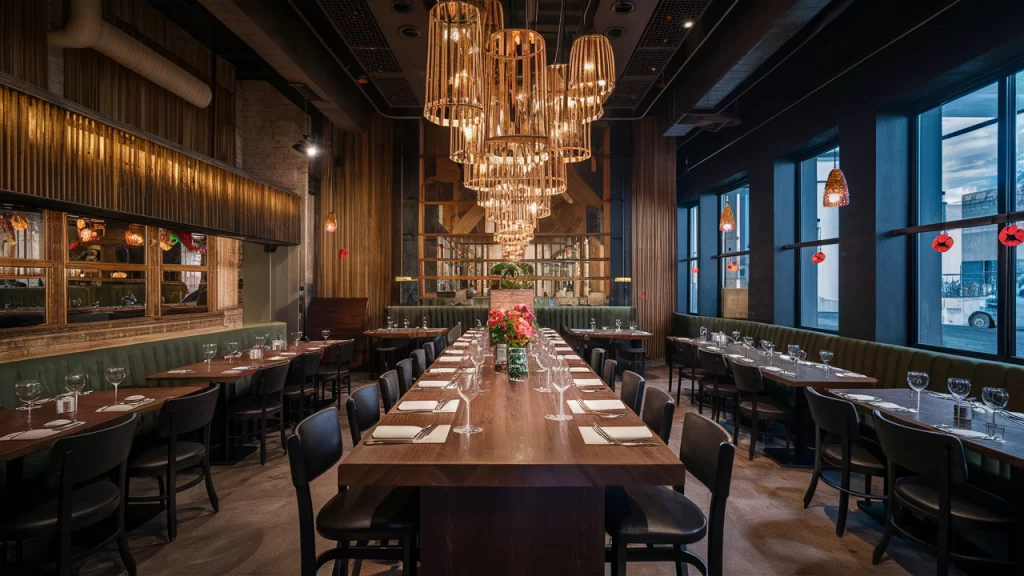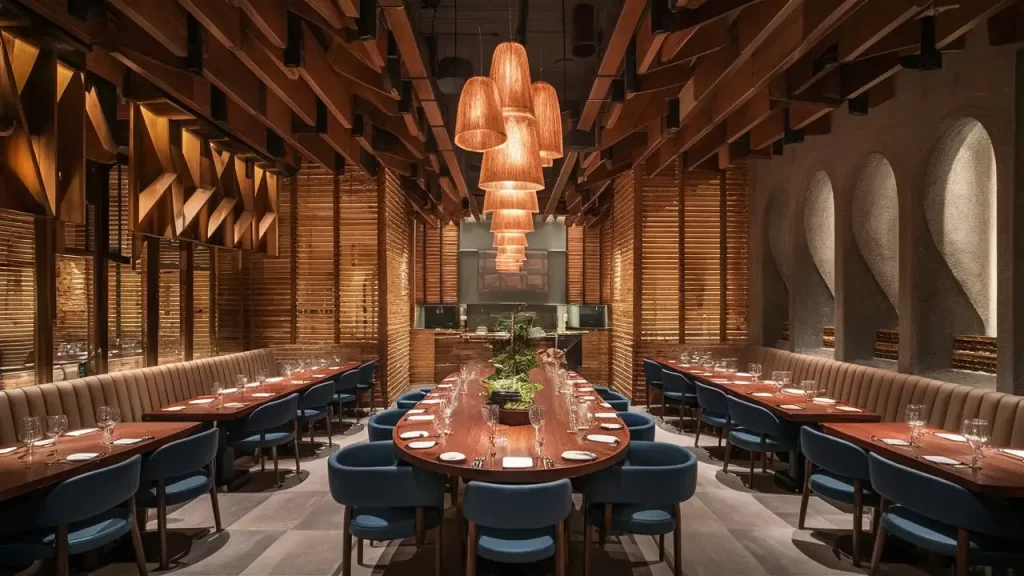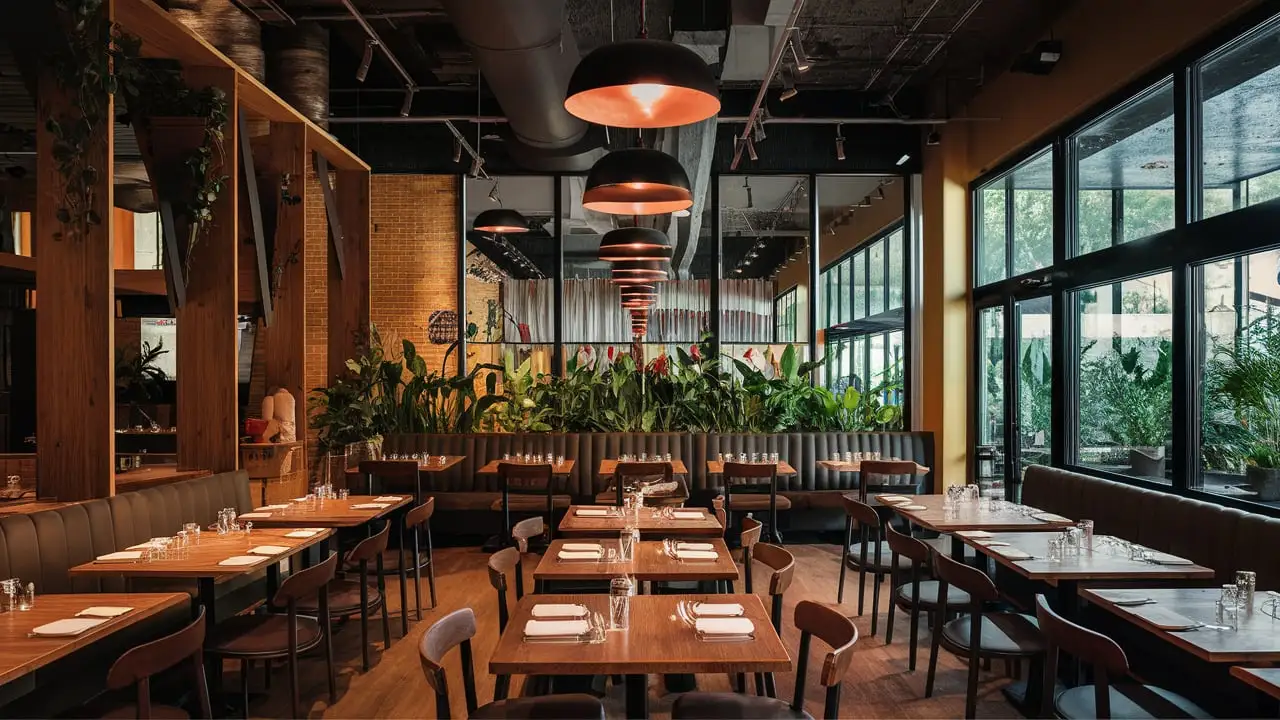Restaurant Names: Unleash Creativity and Captivate Diners
Restaurant names play a crucial role in attracting customers and setting the tone for the dining experience. A creative and captivating name can draw diners in, spark curiosity, and create a lasting impression. This article will explore the importance of choosing the right restaurant name, provide tips for unleashing creativity, and highlight examples of successful names. By understanding these elements, you can create a name that resonates with your target audience and helps your restaurant stand out.
The Importance of a Great Restaurant Name

First Impressions Matter
A restaurant’s name is often the first impression potential customers have. It should convey the essence of the dining experience and give a hint of what to expect. A well-chosen name can intrigue and attract customers, while a poorly chosen one can deter them.
Key Points:
- Sets the tone for the dining experience
- Reflects the restaurant’s theme and cuisine
- Attracts the target audience
Branding and Identity
The name of your restaurant is a fundamental part of your brand identity. It should be memorable, easy to pronounce, and reflective of your restaurant’s unique selling points. A strong name helps build brand recognition and loyalty.
Key Points:
- Enhances brand recognition
- Differentiates from competitors
- Builds customer loyalty
Tips for Creating Creative and Captivating Restaurant Names
Reflect the Cuisine and Theme
The name should give customers an idea of the type of food and ambience they can expect. Whether it’s a casual diner, a fine dining establishment, or a themed restaurant, the name should align with the overall concept.
Examples:
- Spice Route: Suggests a focus on flavorful, exotic dishes.
- The Greenhouse Café Implies a fresh, healthy menu and a relaxed, garden-like setting.
Keep It Simple and Memorable
A simple, easy-to-remember name is more likely to stick in customers’ minds and be shared through word of mouth. Avoid overly complex or lengthy names.
Examples:
- Bite: Short and impactful, suggesting a quick and delicious meal.
- Crave: Conveys a strong desire for the food served.
Use Wordplay and Puns
Clever wordplay and puns can make your restaurant name more engaging and fun. This approach works well for casual dining spots and eateries with a playful atmosphere.
Examples:
- Pita Pan: A playful twist on Peter Pan, perfect for a Mediterranean restaurant.
- Nacho Average Taco: A humorous name for a Mexican restaurant.
Incorporate Location or History
Using elements of the location or the restaurant’s history can add a personal touch and make the name more meaningful to local customers.
Examples:
- Brooklyn Bites: Emphasizes the location and creates a sense of community.
- Old Mill Tavern: Suggests a historic or rustic setting, ideal for a pub or tavern.
Test the Name
Before finalizing the name, test it with friends, family, and potential customers to see how it resonates. Ensure it doesn’t have any unintended negative connotations or associations.
Steps:
- Conduct surveys or focus groups
- Check for existing trademarks or similar names
- Consider cultural and linguistic implications
Examples of Successful Restaurant Names
Iconic Names
Some restaurant names have become iconic, contributing to their enduring success and brand recognition.
Examples:
- The Cheesecake Factory Clearly indicates the signature dish and offers a sense of indulgence.
- Olive Garden: This evokes a sense of warmth, family, and Italian cuisine.
Trendy and Modern Names
Modern restaurants often opt for trendy names that appeal to a younger, hip audience.
Examples:
- Nobu: Simple and elegant, reflecting high-end Japanese cuisine.
- Shake Shack: Fun and approachable, perfect for a modern, fast-casual dining experience.
Themed and Niche Names
Themed restaurants benefit from names that clearly convey their unique concept and appeal to niche markets.
Examples:
- Rainforest Café: Instantly evokes the themed environment and dining experience.
- Cat Café: Clearly indicates a unique dining experience for cat lovers.
Common Mistakes to Avoid

Overcomplicating the Name
Avoid names that are too complex, hard to pronounce, or difficult to remember. Simplicity is key to making a lasting impression.
Examples to Avoid:
- La Casa del Sabor de la Familia Hernandez: Too lengthy and complicated.
- Xyzxyz Bistro: Difficult to pronounce and remember.
Ignoring Cultural Sensitivities
Be mindful of cultural and linguistic implications. A name that sounds appealing in one language may have negative connotations in another.
Tips:
- Research cultural meanings and translations
- Avoid names with potentially offensive meanings
- Consider the global audience if planning to expand
Lack of Uniqueness
Ensure your restaurant name stands out from competitors. Avoid generic names that can easily be confused with other businesses.
Examples to Avoid:
- Pizza Place: Too generic and likely to be confused with numerous other pizza restaurants.
- Burger Spot: Lacks uniqueness and distinctiveness.
Concluding Remarks on Selecting the Ideal Restaurant Name
Align with Your Brand Vision
Your restaurant name should align with your overall brand vision and mission. It should encapsulate the essence of what you want to convey to your customers.
Key Points:
- Reflects brand values and identity
- Resonates with the target audience
- Sets the tone for the dining experience
Seek Professional Help if Needed
If you’re struggling to come up with the perfect name, consider seeking help from branding experts or marketing professionals. They can provide valuable insights and help you create a name that stands out.
Benefits:
- Professional expertise and experience
- A fresh perspective on your brand
- Creative and strategic naming process
Also Read: Business Registration in Cambodia Made Easy: Your Ultimate Guide
Final Thoughts
Choosing the right restaurant name is a critical step in establishing your brand and attracting customers. By unleashing creativity and focusing on simplicity, relevance, and memorability, you can create a name that captivates diners and sets your restaurant apart. Remember, the right name can make a lasting impression and contribute significantly to your restaurant’s success.



